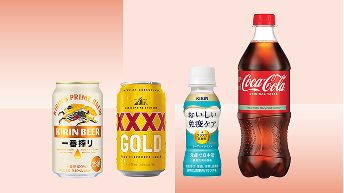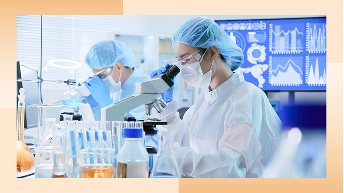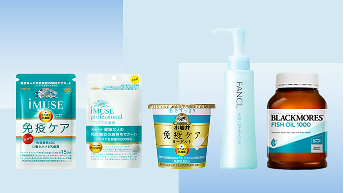Strategies for Each Business Domain Toward 2027
We aim for sustainable growth by appropriately allocating resources according to the stage of each business and creating an optimal business portfolio.
Alcoholic & Non-Alcoholic Beverages Businesses

Segment’s NOP Growth Rate (CAGR) Mid single digit %
Focus Area
Further evolve product development and marketing to meet consumer needs in terms of taste, health, empathy, etc., and implement pricing strategies while improving brand power
-
Steadily improve unit price through price revision and mix improvement
-
Improve Normalized OP margin and ensure stable growth in EPS contribution
Initiatives up to 2024
-
Strengthened focus brands in response to changing consumer needs
-
Differentiated our products and contributed to society by continually expanding our health science products portfolio
-
Expanded premium products that could be differentiated from other products (including brand expansion from Japan to overseas)
-
Improved productivity of the supply chain through facility investments and digitalization
Initiatives toward 2027
-
Strengthen high-profit categories and products, with a focus on beer, to achieve above-market growth
-
Improve profitability by strengthening the RTD category in Australia and the United States
-
Improve profit margin by accelerating growth of health science beverages and other high-profit products
-
Optimize price management and operations for the US consumption market
Pharmaceuticals Business

Segment’s NOP Growth Rate (CAGR) Mid single digit %
Focus Area
-
Steady growth of global strategic products and continued aggressive R&D investment for future growth to continuously create life changing value
Initiatives up to 2024
-
Grew global strategic products
-
Began clinical trials for KHK4083 (for atopic dermatitis)
-
Continued making investment to further expand our pipeline
Initiatives toward 2027
-
Realize sustainable growth of global strategic products
-
Implement initiatives to apply for KHK4083’s approval in 2026 as a treatment for atopic dermatitis
-
Apply for ziftomenib’s approval in the US and promote clinical trials
Health Science Business

Segment’s Normalized OP level for 2027 18.0-20.0 billion yen
Focus Area
-
Implement initiatives for each brand in developing areas to realize growth that outpaces market growth
Initiatives up to 2024
-
Acquired Blackmores and FANCL. Established a growth strategy in Japan and the Asia-Pacific
-
Agreement on the transfer of Kyowa Hakko Bio Co., Ltd.’s amino acid business and others
-
Expanded the LC-Plasma business
Initiatives toward 2027
-
Realize growth of both Blackmores and FANCL and integrate them as planned to realize cost synergy
-
Kirin Holdings and FANCL will collaborate to establish a strategy toward developing examples of new value creation in inner and outer beauty and a plan to implement it
-
Enhance the value of our proprietary material LC-Plasma and expand its business both in Japan and overseas to achieve profitability by 2025
-
Transfer Kyowa Hakko Bio’s amino acid business and other businesses in 2025

Message from the Senior Executive Officer of Health Science Strategy
Aiming to Resolve the World’s Growing Health Issues and Become One of the Largest Health Science Companies in the Asia-Pacific